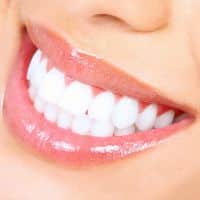Nobody enjoys a toothache caused by a cavity, but the only known remedy is to have a dentist drill and fill the cavity with a calcium or silicon based cement. These fillings remain in our teeth indefinitely, but a new stem cell treatment could induce teeth to self-repair. This procedure would promote stem cell growth within the tooth pulp. Part of this method comes from using a drug already clinically approved to treat Alzheimer’s disease, which means this revolutionary dental treatment could soon be ready for market. The study published in the journal Scientific Reports was concluded by researchers from the King’s College London.
Method Replaces Large Cavities with New Dentine Seal
According to the study, while normal fillings are calcium or silicon based, they prevent the restoration of normal mineral levels in the affected tooth. This is because the fillings cover the soft pulp inside the tooth and cannot naturally be replaced. Damaged teeth make our bodies produce dentine which is a natural coating that protects the vulnerable tooth pulp. However, the amount of dentine released is not sufficient to heal larger cavities, thus currently making a traditional filling a necessity.
The researchers at King’s College created a method that would produce new dentine through the process of stimulating stem cells inside the tooth pulp. This method induces a biological ability in our teeth to use the extra dentine to repair larger cavities without the need for conventional fillings. Biodegradable collagen sponges were used which delivered low doses of glycogen molecules into the cavity. In an eco-friendly way, the sponges would deteriorate over time being replaced by a new seal of dentine. According to lead author Paul Sharpe, the simplicity of the treatment makes it perfect for protecting tooth pulp, restoring dentine levels, and offers an ideal alternative to cement fillings as it is a natural treatment for larger cavities.
Procedure Relies on the Body’s Natural Defenses
The team of researchers used a molecule called Tideglusib which is an inhibitor used to activate the stem cells into repair mode. This inhibitor has successfully been applied to treat Alzheimer’s disease in clinical trials. Also, the collagen sponges used to fill the cavities are clinically approved and commercially available for use. Now that Tideglusib and collagen sponges have been proven to work, this natural tooth repair system looks likely to be a dental product that could soon be available to dentists.
This new dental technology is a welcomed alternative to standard cavity fills which are susceptible to breaking leading to necessary refills in order to prevent further tooth decay and infections. This medical breakthrough relies on the body’s own natural defenses and scientists are finding better ways to enhance this ability. If this medical procedure is approved it will make the old cavity fillings a thing of the past.




